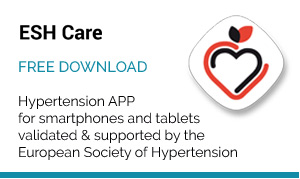Amlodipine was associated with less stroke, combined CVD, GI bleed, angina, and peripheral arterial disease (PAD), compared to lisinopril, in a comparison of the 9048 patients in ALLHAT who were randomized to amlodipine (2.5 to 10 mg) and the 9054 patients randomized to lisinopril (10-40 mg). Follow-up was nearly 5 years. At baseline, 24% of the patients had coronary heart disease (CHD). This post-hoc analysis was presented by Dr. William Cushman (VA Medical Center, Memphis, Tennessee, USA) at the European Hypertension Meeting in Milan.
Blood pressure lowering was better in the patients with CHD at baseline, although in the patients without CHD at baseline, amlodipine lowered blood pressure 1-2 mm Hg more than lisinopril.
For the primary endpoint, there was no difference between the two drugs, or for all-cause mortality or end stage renal disease.
The rate of stroke rate was 31% higher with lisinopril in patients with CHD at baseline (p=0.04) and 20% higher in patients without CHD at baseline (p=0.03), compared to amlodipine. Peripheral arterial disease (PAD) rate was 39% higher with lisinopril in patients without CHD at baseline (p=0.06) and 7% lower in patients with CHD at baseline (p=0.58), compared to amlodipine.
The rates of angina were similar with lisinopril and amlodipine in the patients with CHD at baseline (RR 0.99, p=0.87) and in the patients without CHD at baseline (RR 1.17, p=0.02).
There was 9% less heart failure in patients with CHD at baseline with lisinopril versus amlodipine (p=0.31), and in patients without CHD at baseline there was 15% less heart failure with lisinopril (p=0.02), but these did not reach statistical significance.





